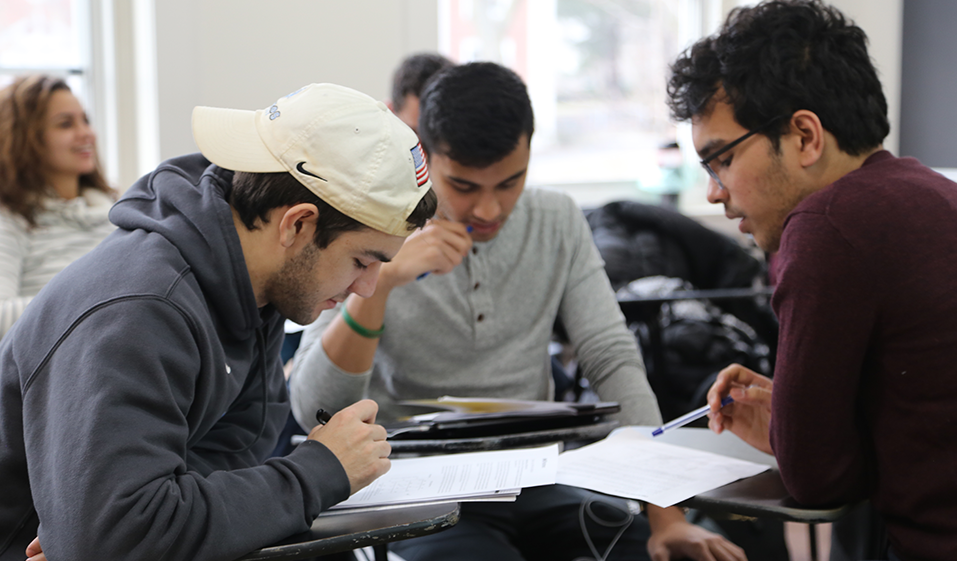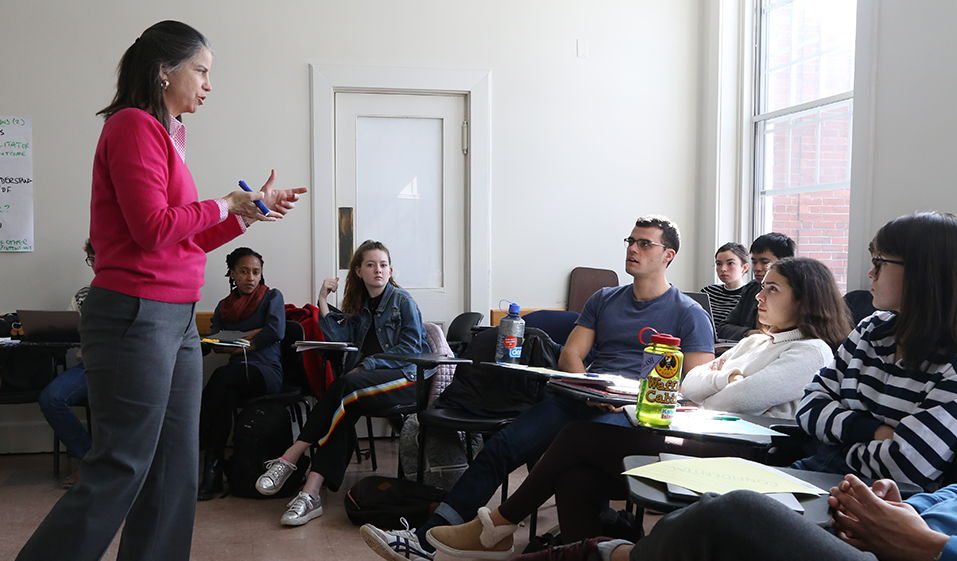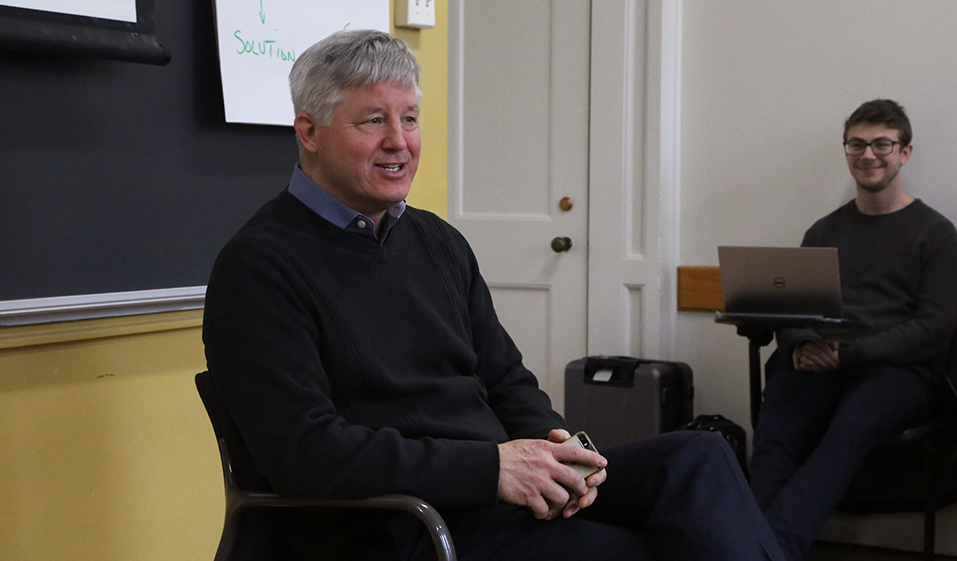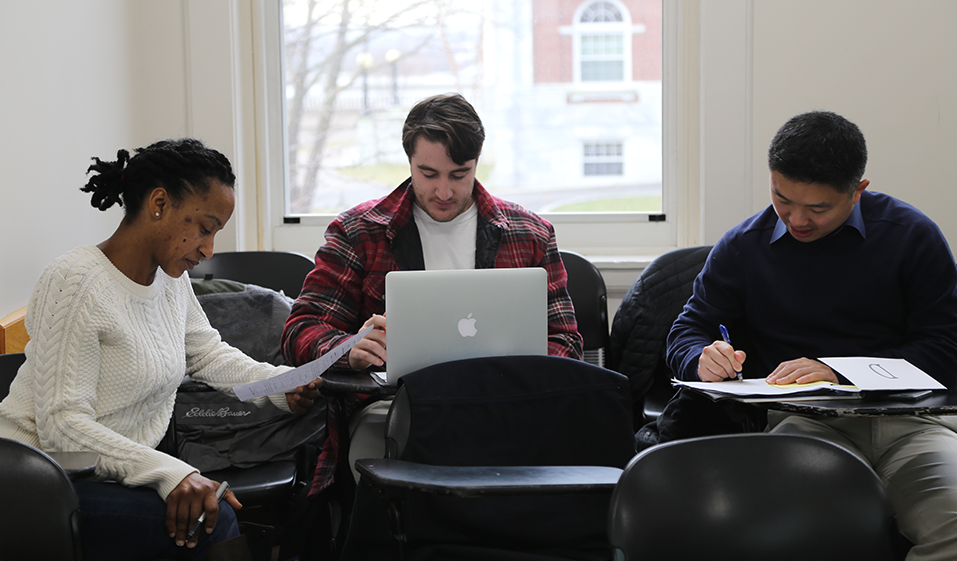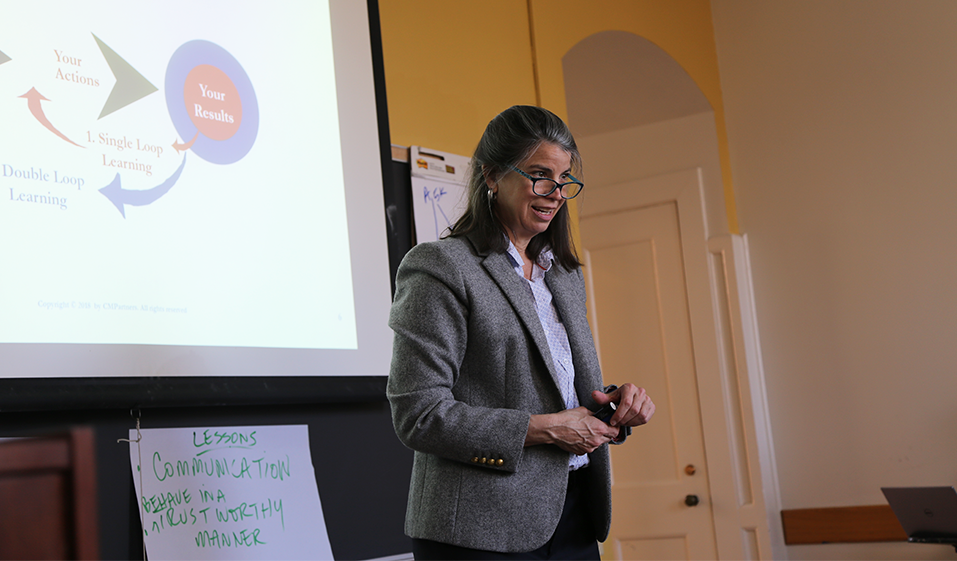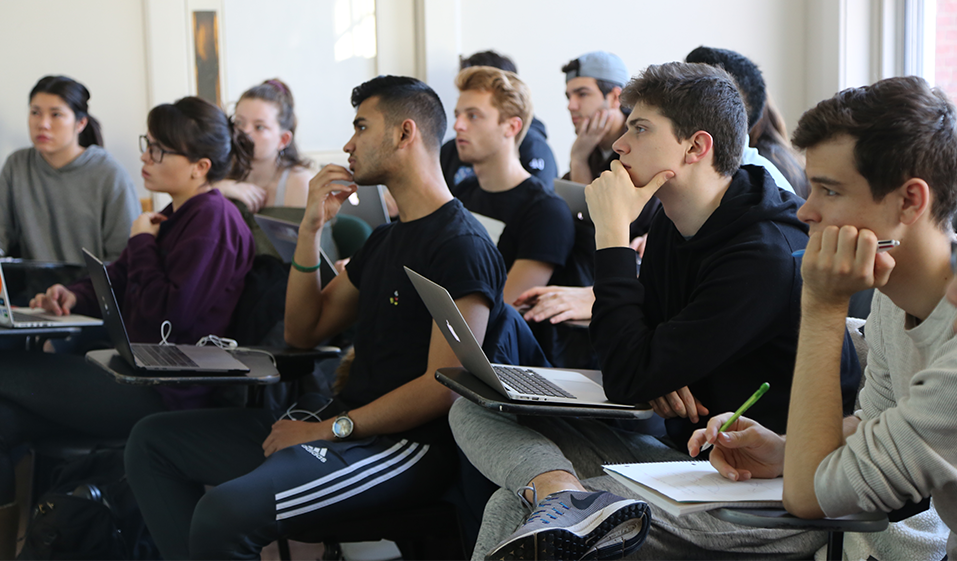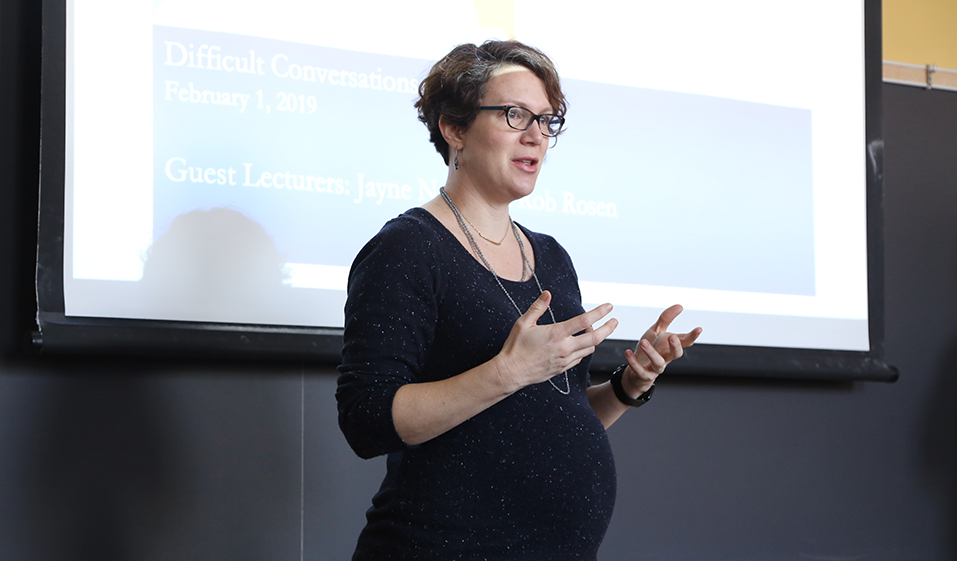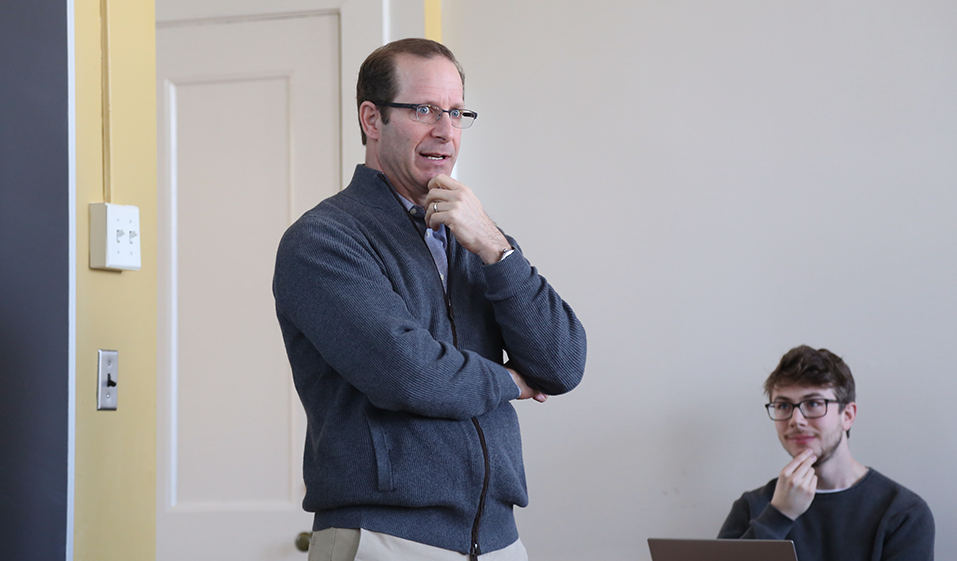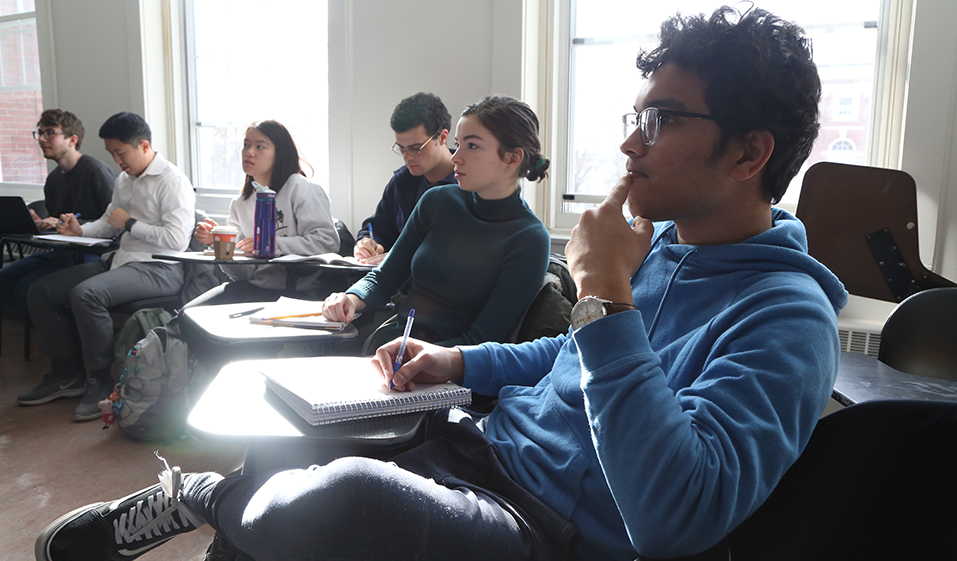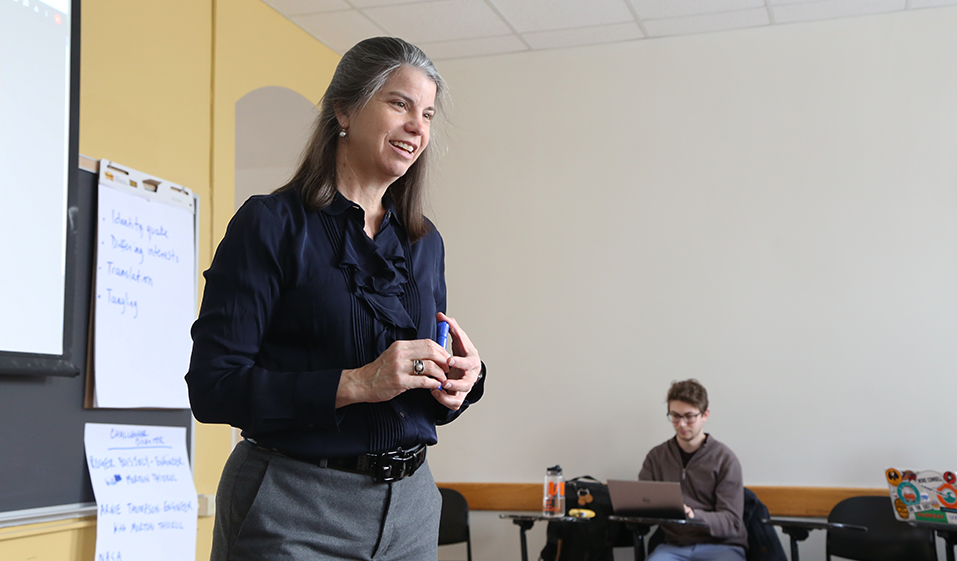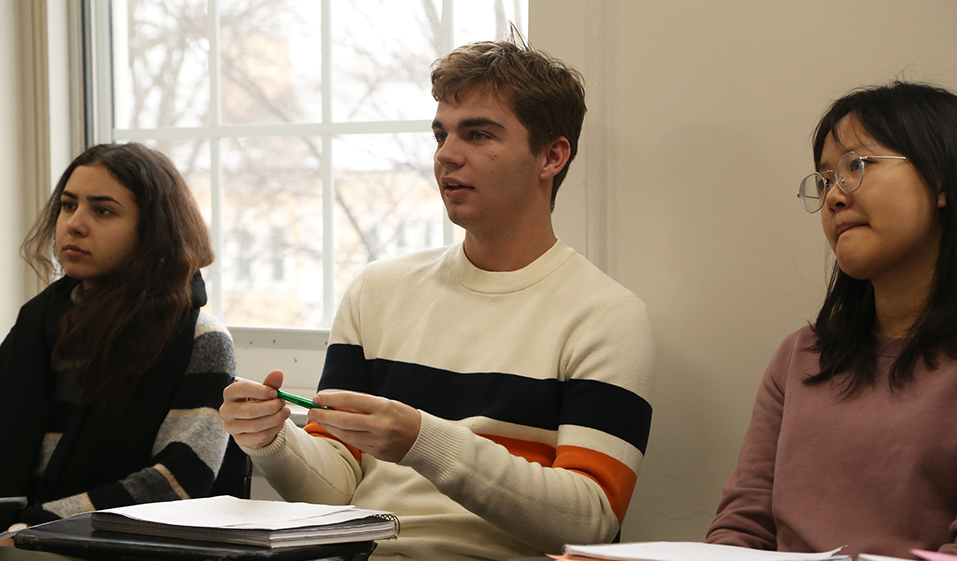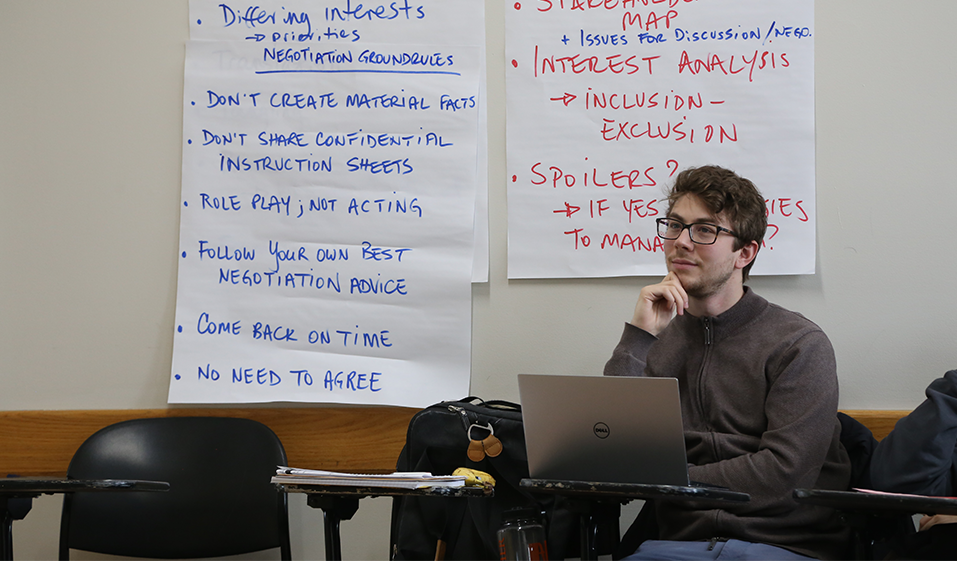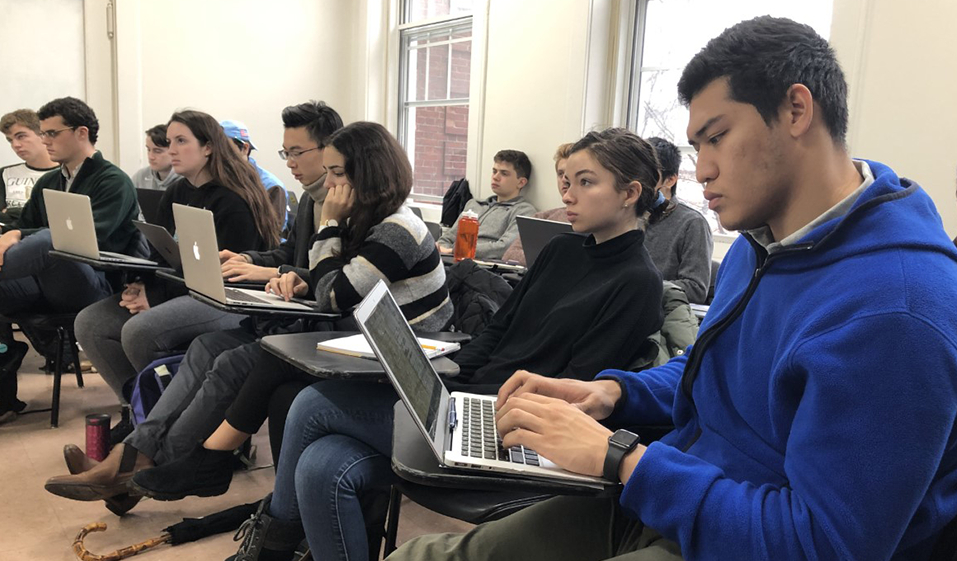As leaders in the twenty-first century, how can we most effectively exercise influence in a global, multi-cultural environment? Are we ‘born’ diplomats or can we learn and improve our negotiation skills? Should we pummel our opponent (and “win”) or can we do well in a negotiation while preserving the relationship and laying the groundwork for future negotiations?
The focus of this program is on teaching students how to build common ground, establish dialogue, and develop relationships, while understanding the context –both historical and current –of the negotiations or mediation. Students engaged in the program will learn how to consider alternative perspectives and worldviews, understand system dynamics and the complexity of issues and actors, and apply conflict analysis models, tools and processes.
Elizabeth McClintock, a longtime practitioner in the field who will be teaching the inaugural course, said, “Every time I work with diplomats, business leaders, peacemakers, military officers and other leaders, they all tell me that they wished they'd learned the basics ofnegotiation earlier in their lives. Tufts students are poised to fill the shoes of these same global leaders and I'm excited to give students an opportunity to improve their skill set and gain a more nuanced understanding of global negotiation issues so that they can jump on that leadership track even earlier in their lives.”
Components of the Program include: a course on “21st Century Negotiation Skills for Global Leadership”, a lecture series that will bring prominent practitioners to campus, internships exposingstudents to the practice of these issues in the field, and supporting student research initiatives.
The new program will begin with the course, which will be offered in the 2019 spring semester with the goal ofpreparing students to be more effective global leaders and to engage successfully with others across borders and cultures –national, organizational, institutional –by improving their negotiation, communication, and conflict management skills.
It is designed to build students’ self-awareness about their own negotiation habits and behaviors; to help them learn how to put themselves in the shoes of their negotiation partner in order to better understand them and their strategies and motivations; experiment with collaborative approaches to problem-solving; and test a range of distributive and integrative negotiation approaches.
Throughout the semester, students will confront negotiation challenges ranging from international peace processes to trade disputes; from community conflict to global public health crises. An integral part of the course is an emphasis on the ethical aspects of negotiation, mediation, and conflict resolution, especially as these apply to the exercise of leadership in an increasingly interconnected world.
Instruction will be interactive and experiential, with facilitated discussion, hands-on exercises, case study analyses, and negotiation simulations as the primary methods of capturing and applying the learning from assigned readings, out-of-class exercises and real-life experience. Students will have access to podcasts, video, and readings outside the classroom and be asked to apply what they are learning from those media to the in-class exercises and simulations. There will also be a “Weekend Negotiation Workshop” that will allow students to experience a ‘deep dive’ on the core negotiation skills that will be honed over the course of the semester, as they are applied to different situations and contexts.
The course will be taught by Elizabeth A. McClintock, an Adjunct Assistant Professor of International Negotiations at The Fletcher School of Law and Diplomacy and Founder and Managing Partner with CMPartners, LLC. Dr. McClintock leads CMPartners’ public sector practice and has 25 years of experience offering consulting services to and designing and implementing negotiation, conflict management, and leadership training programs for both private and public sector organizations around the world. In her work, Dr. McClintock has advised the US Government and the United Nations Office of the Special Adviser of the Secretary General to Burundi on the Burundi dialogue process; assisted the reform process in the Burundian Army; worked as the lead facilitator for a two-year Liberian government collaborative capacity-building project; advised the Office of the President of Sri Lanka; and managed a two-year,high level government leadership-training program in Timor-Leste. Dr. McClintock is a founding member of the Burundi Leadership Training Program, for whom she served as the lead facilitator and program designer for over eight years. Among other current projects, Dr. McClintock is supporting a Multi-stakeholder dialogue (MSD) process for the Sierra Leone Ministry of Health and Sanitation.
McClintock said she got involved in negotiation when she was a graduate student at The Fletcher School, “I had the great pleasure of taking my first negotiation course with the late Tufts Professor, Jeff Rubin. He inspired my interest in international negotiation and conflict resolution and encouraged me to pursue a career in this field.” She hopes students who take the course leave with “the idea that negotiating is fun, interesting, and can help them to achieve their' life's goals. I want students to have the skills to prepare for and conduct negotiations, so that they get the best results possible in their future negotiations.”
Having participated in the Negotiations course, students will have the opportunity to apply for specifically designed internships with individuals and groups engaged in negotiations and mediation. These internships, five to eight annually, will be supported by the IGL. The IGL will also encourage and support students to conduct research into current and past international negotiations efforts –asking questions from what are the necessary pre-conditions to as well as examining the legacies of the negotiations and any unintended positive or negative consequences. These projects will be supported by the IGL.
EXP-0078-XS 21st Century Negotiation Skills for Global Leadership

